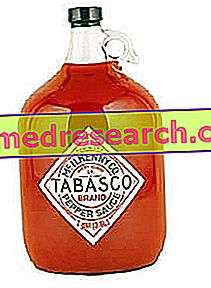ASPIRINETTA ® is a drug based on acetylsalicylic acid + magnesium and aluminum hydroxide
THERAPEUTIC GROUP: Non-steroidal anti-inflammatory and antirheumatic drugs
IndicationsAction mechanismStudies and clinical effectiveness Usage and dosage instructionsWarnings Pregnancy and lactationInteractionsContraindicationsUndesirable effects
Directions ASPIRINETTA ® Acetylsalicylic acid
ASPIRINETTA ® is indicated in the treatment of rheumatic diseases in pediatric patients.
Mechanism of action ASPIRINETTA ® Acetylsalicylic acid
Acetylsalicylic acid, the active ingredient of ASPIRINETTA ® is a molecule included among the non-steroidal anti-inflammatory drugs and more precisely in the chemical category of salicylates.
Its particular therapeutic efficacy is due to its ability to transesterify a residue of cyclooxygenase serine, enzymes involved in the synthesis of inflammation mediators known as prostaglandins, irreversibly inhibiting their activity.
This inhibition takes the form of an action:
- Anti-inflammatory, linked to the reduced expression of prostaglandins endowed with vasopermeabilization, vasodilator and chemotatic activity;
- Antipyretic, mediated by the inhibition of the synthesis of cytokines and chemical mediators able to reach the hypothalamic thermoregulatory centers, raising the thermal set-point;
- Analgesic, performed through the control of the synthesis of molecules such as bradykinin, able to activate the peripheral terminations of nociceptors.
Furthermore, studies show that, like acetylsalicylic acid taken at dosages lower than 300 mg, it can act selectively at the platelet level, reducing the expression of thromboxane A2, responsible for a powerful pro-aggregating platelet and vasoconstrictor action.
This different mode of action is closely associated with some pharmacokinetic differences that allow acetylsalicylic acid as such to act selectively on platelets, thus escaping the hydrolytic action of hepatic esterases, and salicylic acid, a metabolite obtained afterwards to the action of intestinal and hepatic esterases, to instead act mainly on endothelial and inflammatory cells, thus fulfilling the classic antiphlogistic action.
In both cases the active ingredients, following an intense hepatic metabolism, are subsequently eliminated via the urinary tract.
Studies carried out and clinical efficacy
1. MONITORING METHODS OF THE ACETYLSALICYLIC ACID EFFECTIVENESS
Clin Chim Acta. 2011 Jul 15; 412 (15-16): 1366-70. Epub 2011 Apr 13.
Interesting work that tries to best characterize the efficacy of treatment with acetylsalicylic acid by evaluating urinary concentrations of catabolites related to thromboxane A2. In this case the non responders also showed low urinary concentrations of this marker
2 .JUSTIFIED ABUSE OF ACETYLSALICYLIC ACID IN THE AFRICAN PEDIATRIC POPULATION
S Afr Med J. 2011 Nov 1; 101 (11): 823-8.
Recent work that denounces the unjustified abuse of acetylsalicylic acid in the African pediatric population, considerably increasing the number of small patients suffering from often lethal metabolic acidosis.
3. THE ASPIRIN IN THE FAMILY ADENOMATOSA POLYPOSIS
Cancer Prev Res (Phila). 2011 May; 4 (5): 655-65.
Very interesting study that shows how the daily use of 600 mg of aspirin can reduce the number and size of intestinal polyps in patients with familial adenomatous polyposis in volumetric and proliferative terms.
Method of use and dosage
ASPIRINETTA ®
100 mg tablets of acetylsalicylic acid.
The dose of acetylsalicylic acid to be used for the treatment of rheumatic diseases varies considerably according to the age of the young patient, therefore ranging from 100-200 mg per day in children between 1 and 3 years up to 600 - 900 mg per day in children over 11 years.
It is advisable to take the drug, after medical indication, preferably on a full stomach.
Warnings ASPIRINETTA ® Acetylsalicylic acid
The use of ASPIRINETTA ®, especially for pediatric patients, should be supervised by your pediatrician and limited to cases of real need.
In order to minimize the numerous expected side effects, it would be advisable to take the drug on a full stomach, using the minimum effective doses, able to guarantee an improvement in the symptoms.
Close monitoring should be reserved for all patients suffering from cardiovascular, coagulative, renal, hepatic, allergic and gastrointestinal diseases, given the greater susceptibility of these to the side effects of NSAID therapy.
If the therapy turns out to be ineffective or you notice the appearance of side effects, it would be advisable to consult your doctor, possibly considering the possibility of suspending the drug.
PREGNANCY AND BREASTFEEDING
Despite the low dosages of acetylsalicylic acid contained in ASPIRINETTA ®, the use of this medicine is contraindicated in pregnant women.
This contraindication is supported by numerous evidences that show how taking non-steroidal anti-inflammatory drugs during pregnancy can increase the risk of fetal malformations and unwanted abortions, compromising the normal differentiation and proliferative process of the various cells.
Interactions
The acetylisalicylic acid contained in ASPIRINETTA ®, could interact with numerous drugs among which:
- Oral anticoagulants and serotonin reuptake inhibitors, responsible for the increased risk of bleeding;
- Diuretics, ACE inhibitors, angiotensin II antagonists, methotrexate and ciclosporin, resulting in increased hepatotoxic and nephrotoxic effects of acetylsalicylic acid;
- Non-steroidal anti-inflammatory drugs and corticosteroids, resulting in a significant increase in the risk of histological damage to the gastro-intestinal mucosa;
- Antibiotics, responsible for pharmacokinetic alterations and related therapeutic efficacy;
- Sulfonylureas, altering normal glucose metabolism and leading to a greater risk of hypoglycemia.
Contraindications ASPIRINETTA ® Acetylsalicylic acid
The intake of ASPIRINETTA ® is contraindicated in case of hypersensitivity to the active ingredient or to one of its excipients, angioedema, peptic ulcer, history of intestinal bleeding, ulcerative colitis, Crohn's disease or previous history for the same diseases, cerebrovascular bleeding, haemorrhagic diathesis or concomitant anticoagulant therapy, renal failure, liver failure, asthma, hypophosphataemia and viral infections.
Undesirable effects - Side effects
Despite the low dosages of acetylsalicylic acid present in ASPIRINETTA ® allow to significantly reduce the incidence and the severity of the various side effects, it is useful to remember that the prolonged use over time of non-steroidal anti-inflammatory drugs, may facilitate the appearance of pathological conditions at load of:
- Gastrointestinal system, subjected to the direct and indirect irritation of the ASA which manifests itself with burning, gastralgia, nausea and vomiting, constipation and in more serious cases ulcers and hemorrhages;
- Blood, in which a significant lengthening of the bleeding time is observed, only rarely associated also with pancytopenia;
- Genitourinary system, characterized by a progressive deterioration of renal function;
- Integumentary system affected by erythema nodosum, rash, dermatitis and bullous reactions in the most serious cases;
- Sensory system affected by hearing loss and ophthalmopathies;
- Metabolic control, with alterations mainly due to carbohydrate metabolism;
- Central nervous system with headache, insomnia, drowsiness, confusion and tremors;
- Cardiovascular system associated with an increased risk of cerebro and cardiovascular events.
Note
ASPIRINETTA ® can be sold only with a medical prescription.



